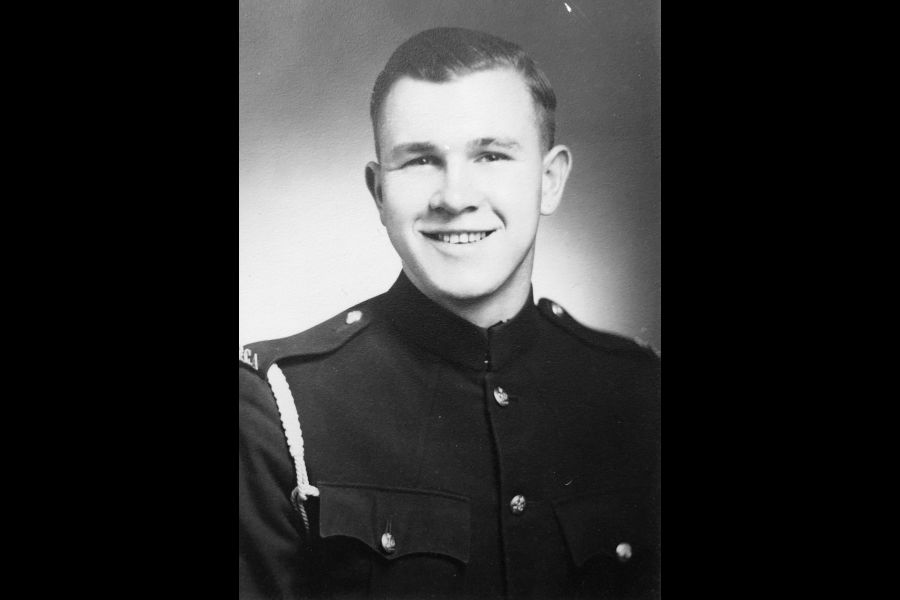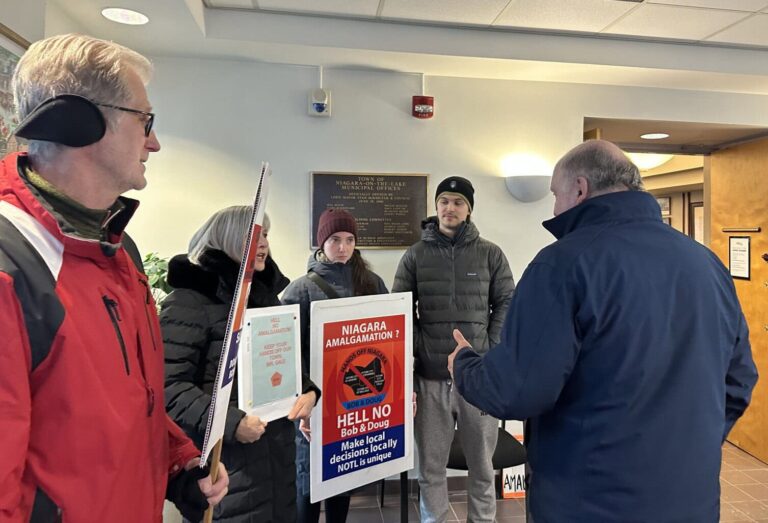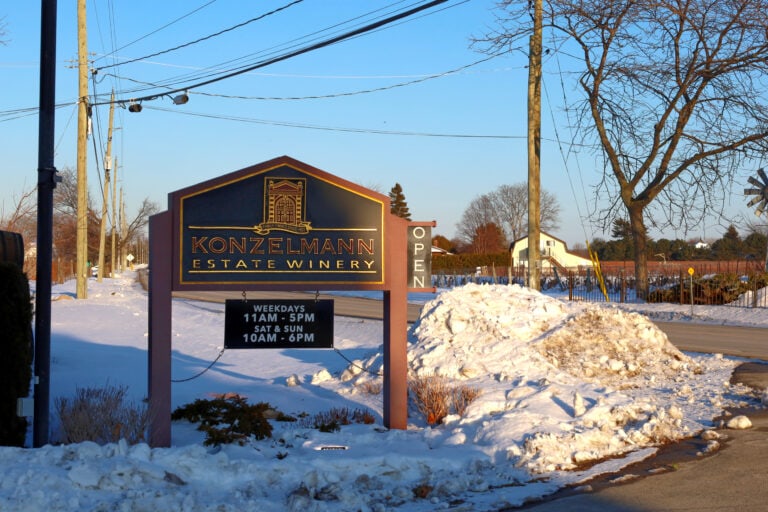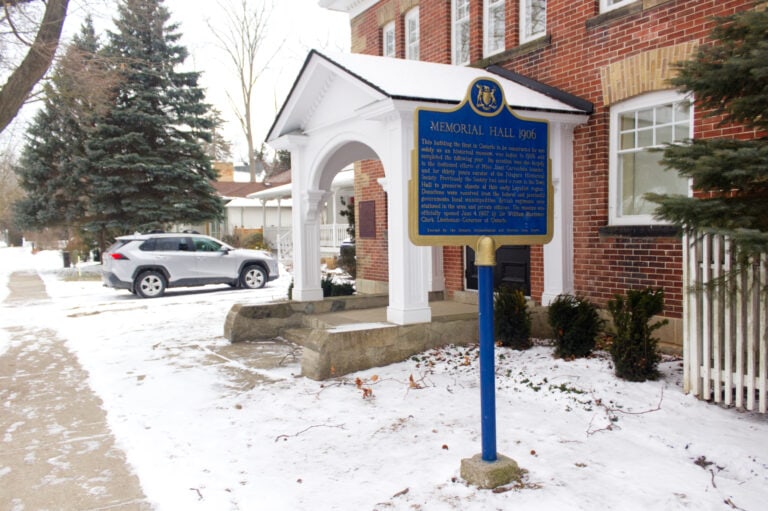In 1987, the Niagara on the Lake Legion, Branch 124, interviewed and recorded more than 150 life and service vignettes of its members, saving their memories for posterity, on now-antiquated cassette tapes, labelled and stored in three sturdy cardboard boxes above cupboards in the Legion office.
The Legion now calls the effort, the Memory Project, and is slowly working through the process of making the archived recordings more widely available to families and military history buffs.
As part of our Remembrance Day coverage, The Lake Report requested permission to listen to a recording, selected at random, to get a first-hand feel for the life and times of one combat veteran.
This is the story of Lewis Lambert.
_________________________________________
Lewis Patterson Lambert was born in June 1923, in what was then called Grantham Township, before it became part of Niagara-on-the-Lake in 1961. He was the eldest son of Frank and Annie Lambert. He had four siblings.
His family farm on Townline Road was homesteaded by his grandparents in 1868. Lambert went to grade school at School Section #9 and then went on to attend The Collegiate in St. Catharines.
In May 1941, not yet 18 years of age, Lambert made his way to the armoury on Lake Street in St. Catharines, volunteering for service in the Canadian Army.
“I was posted to the 122nd Battery, 62 Regiment,” Lambert recounts, in the early moments of his taped interview. “It later became part of the 8th Light Anti-aircraft Regiment. Do you want my number? It was B15579.
“I went in as a gunner and came out a gunner.”
After joining up he was sent to Camp Niagara. “We were very fortunate; it was a beautiful spot.”
Camp Niagara was established after Confederation, by the federal government, as a military reserve on what is now the Commons, on the edge of Old Town. It served both the mustering and training needs of the Canadian military through every war until 1966.
“They put us all in short pants. The sun was very hot, we all got burned. We all got blistered. We all got sick for a week.”
In June, Lambert was posted to Camp Debert, Nova Scotia, for training.
“When we got there, there wasn’t too much of a parade square,” he recalls. “We had to cut the trees, level the ground and pull the stumps.”
The winter of 1941-42 was long and cold.
Lambert contracted scarlet fever and was bedridden for a month.
“I was in isolation about 30 days. One day a nurse came in and said, 'There are 60 parcels for you.'
“My mom and dad had sent me down peaches and prunes from the farm. Most of the nursing sisters were from the east coast. They thought that was great. They kept eating prunes. I told them, 'Quit those prunes, you are going to have trouble.' They kept eating anyway.
“There was a dance that night. Next morning, the orderly said, ‘What the devil did you give the nurses last night’? The toilet door was swinging all night.
“Turned out to be a joke later, but it wasn’t funny that night.”
After more training in Sussex, New Brunswick, Lambert received orders for overseas in August 1942.
“We took the train to Halifax and sailed on the Capetown Castle, arriving nine days later in Liverpool.”
The Royal Mail Motor Vessel Capetown Castle was launched in 1937, in mail service from England to South Africa. She was requisitioned as troop ship in 1940 and finally returned to her owners in 1946, having sailed some 800,000 kilometres and carried over 164,000 troops.
Lambert and his comrades received most of their training in southern England: “Too many places to mention here,” he tells interviewer.
Like many veterans, when Lambert gets to his actual combat experience, he becomes somewhat guarded. He sums up his two-year combat experience in two short sentences: “In July 1943 were moved to France. We fought our way through France, Belgium, Holland and into Germany.”
Then he jumps right to the end of the war.
“We came back on the Queen Elizabeth in December (1945) and arrived in New York. From there we took the train to Hamilton, where our families met us. I was discharged in January 1946.”
Lambert did offer one, somewhat scary and poignant story.
“Another time we were moving up. We were in a town, sheltering in a building. All of a sudden, the door opens and in jumps this German. I don’t know who was more scared, him or me.
“It turned out, he wanted to give himself up. We gave him his breakfast and took him down to the PoW cage. He was just an ordinary, regular soldier.”
Lambert returned to Niagara, bought a small farm, joined the Legion and married Marion Kerr in 1948. Marion died in 1961, “and I still love her.” They had three children.
Until his retirement in 1983, Lambert worked the farm and held down increasingly responsible jobs at McKinnon’s, with Agriculture Canada as a food and vegetable inspector, and later the Ontario Food Terminal in Toronto.
He died in August 1998 at age 75.
Lambert’s brother, Berkeley, younger by 15 years, remembers him fondly.
The Lake Report found the 82-year-old Berkeley at his farm home on Townline Road, the same home his grandfather built over 150 years ago.
“I was only three or four when Lewis went away to war. When he returned, I think it was three years later, I was so happy.
“He taught me how to drive. He bought a farm and he needed help, so he taught me how to drive the tractor. He needed a little lad to sit on the tractor and steer, so I helped him.”
Lewis Lambert served as president of Branch 124 in 1988-89. One of the issues of his time was whether the Legion should welcome “new blood” — non-enlisted members.
He wanted to make sure the Legion continued to have a vital place in the community.
“I think we are very lucky. We haven’t had a war. I think we should appreciate the associate members coming in. If we had a war, with lots of people killed, we would have had a lot of new Legion members. So, I’d sooner the associate members come in, than have another war.”
Lambert’s daughter Kathy remembers his generosity: “An amazing personality. Outgoing. People just gravitated to my father. Everyone made friends with him. He could walk into a room without knowing anyone and leave as friends with everybody.”
One veteran remembered on Remembrance Day.










